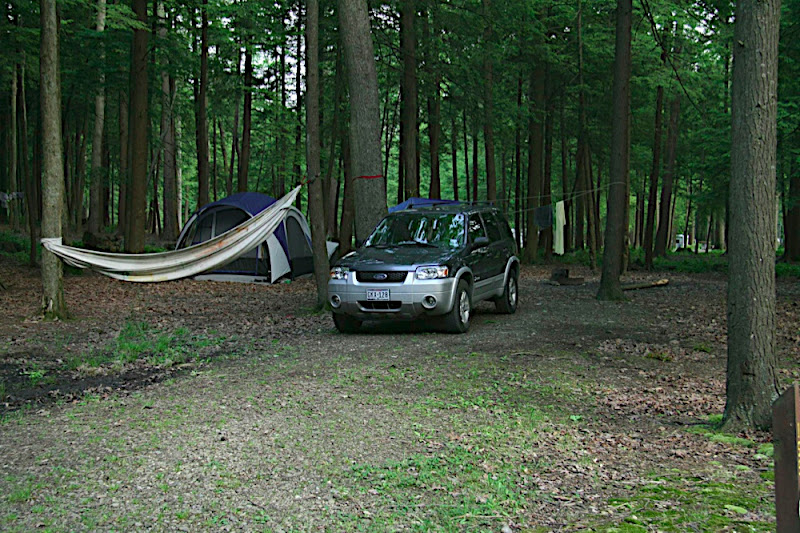missional lifestyle, the City, thinking green - by Jeff - January 11, 2012 - 14:17 Etc/GMT+5 - Be first to Comment!
Trash everywhere. That is one thing I am noticing about this urban living. Sure, Main street is nice and clean, but that is because people are paid to keep the trash cleaned up. What about the rest of the streets we live on? Who is responsible to cleaning them up? Full Story
missional lifestyle, thinking green - by Jeff - February 2, 2010 - 01:26 Etc/GMT+5 - Be first to Comment!

The need for people to connect across race and class lines, among neighbors and churches, and between urban and suburban neighborhoods is urgent. We’re designed for one another, and there is joy in diversity. We believe there is yet-to-be-discovered imagination between us, meaning that our full God-given creativity is found when diverse people learn from one another, building mutual, give-and-take relationships.
– Nate Ledbetter, metromerge.org
For most of the last 6 months, I have been considering the coworking movement, shared office space and ways to work together as a community. Full Story
missional lifestyle, thinking green - by Jeff - January 15, 2009 - 15:07 Etc/GMT+5 - 1 Comment
People gripe and complain about the economy, about who is elected for what office, about how nothing last like it use to (and growing landfills) and all these other social and environmental issues, yet they are getting exactly what they voted for. NO, I am not talking about the vote you cast at the ballot box. While that counts for something, we each vote every single day with our time and our money: a much more powerful elector.
I am sure I could rant all day about this if you let me, but today let me point you to a couple items to note and a few resources you may be interested in.
Regulating the U.S. to Death – my wife does a lot of our social and environmental blogging, this post from yesterday is just the tip of the iceberg, feel free to look at some of our other posts there.
Buy Used: buying used reduces waste, saves you money and reduces demand for cheap junk. Buying local reduces transportation cost and is environmentally friendly.
The Power of Consumer Patriotism: (lots of ads on this site, but there is some good info if you are willing to dig.)
a couple of Resources (click on the icons to visit the websites)


Excellence in the Arts, family, thinking green - by Jeff - June 17, 2008 - 00:26 Etc/GMT+5 - Be first to Comment!
It’s been a while since I posted, a lot has been going on, so here is a brief rundown.
First of all, Vacation! Yes, my family and I actually took some vacation, and I really did take off a few days – that’s right, several days without ANY work! Now to be honest, we were gone 10 days, and I did work part of at least 5 of them. So what did we do? Our youngest 4 went to have a vacation with my parents in the Houston area, then Amy, our oldest 3 boys and myself took off on a road trip and camping.

We challenged ourselves to do this trip for as little cost as possible, so we pushed every mile per gallon we could out of our little hybrid Escape, avoided eating out as much as possible, camped or stayed with friends and family and had a fun time doing it. A big thank you shout out to all of Amy’s e-maginary friends that hosted us on the road and helped us with supplies and food camping (sorry, you just can’t fit that much food in that tiny SUV when you have 5 people and their stuff in there too!) A big thank you to our media team and church staff who covered all the happenings at church while we were gone also!
So where did we go? Photos and Google map are here: but the short of it is DC and then camping in NW Pennsylvania. We had a wonderful time but we are also glad to be home.

Planning Retreat – Yep, while I was sitting on a stump out in middle of a forest, spent a good part of a day and a half praying to reading scripture, listening to teachings and sermons and firing up the apple laptop and writing out a ministry plan for the media ministry for the 2008 / 2009 planning year. More details will be posted as we start to work thru the plan, but you can rest assured that we really do have a plan in place!

Consulting – it seems like when it rains, it pours. Right now we have a half dozen clients whose projects are in full swing and need design work done NOW. So I am in middle of several designs, working with the clients to meet their timelines and needs, all of which is keeping us very busy. With some careful planning and scheduling, it looks like we will be able to get everything done for everyone, but it is looking like a busy summer.
missional lifestyle, the City, thinking green - by Jeff - March 8, 2008 - 03:30 Etc/GMT+5 - Be first to Comment!
This is an extension of the “Going Green with your green” post
The federal government is getting ready to dump billions of dollars into the economy to help stimulate the economy and help American families. The idea is that each of us tax payers, and those working families who don’t make enough to pay taxes, each will get a tax rebate (not sure how you can call it a rebate if you don’t pay anything in, but that argument is for another time), the amount based upon the number of people in the household. The checks are suppose to start mailing in May, then we will each turn around, spend that money on things we need and get some cash flowing in the economy.
A lot of folks will spend as if it were lottery winnings or an inheritance from a long lost uncle, purchasing things one would not otherwise buy for oneself when inflation is as high as 18% (look at your receipts… groceries alone have gone up 18-22% in the last 18 months). Some have already spent the money buying things they want and will use the check to pay off (or down) credit card debt. While this is spending the money and getting it into the economy, it is very short-sighted.
First, we are turning around and giving our cash into the big corporations that are already reporting record profits and don’t need help with an economic stimulus. Exxon Mobil (see here (and here)), Walmart (see here), etc (here, here, here). The impact on the economy will be short-lived if the rebates are poured right into the overflowing hands of Big Oil and Big Box Retailers. They are not hurting, despite the increases in prices (inflation) and the freeze on hiring and pay raises, and in some cases lay-offs (automaker with profit let go 8100 people), they do have profits, and even record profits.
Second- environmental impact. The environmental impact of the consumerist, materialistic lifestyle will cost even more down the road. Any economic upturn will be followed by an equal or deeper downturn. Dependence on oil is rooted in the dependence on modern luxury goods such as tv, radio, prepackaged food, eating out. Look at the “carbon footprint” left behind — miles goods travel, the amount of packaging required, and the landfill holding all the trashed stuff. [carbon footprint calculator]
Third – social impact. World magazine [Vol. 23, No.4, p 10] puts it this way:
“Not all taxpayers are created equal in the eyes of Congress. The economic stimulus effort signed into law Feb. 13 will mean different things to different Americans… but [the money] is only for taxpayers who made up to $75,000 last year and married taxpaying couples who made up to $150,000. Individuals who made between $75,000 and $87,000, and married couples who made between $150,000 and $174,000, will receive only partial rebates.” The implication is that the very hardworking middle class is being, once again, left out. When exactly did that income level become middle class? I’ve always thought I was middle class, and once again (the Federal School Lunch program gave me my first blow) I’m knocked over with a fiscal feather. I thought people who made that much money were well off and already spending a fair amount of disposable income. The average income of a single person in Austin is $42,689. The per capita income in Austin is about $24,000. Then I found this graph.
The number of Austin families making less than $50,000 a year decreased, and the numbers making over $50,000 increased in the last decade of the 20th century. And the percentage of single taxpayers or families earning between $75,000 and $100,000 was about 12.5%. The number of families earning between $150,000 and $200,000 is less than 4%. Now it’s been a long time since I sat in an economics class, but including the families making $200,000+, that is fewer than 9% of Austin families. That’s not middle class. That’s the wealthiest 10% of our society. The folks that may worry me are those who make so little money that they don’t always file taxes at all. We need to make sure folks know to file their taxes– and low income folks can file for free with Turbo Tax online. It’s accessible from any public library for free.
So what are we to do?
1. See Amy’s post on Going green with your green – we could make a huge difference if we all used our economic and tax rebates in a social and ecologically sound way, such as green initiatives. Use your rebate to purchase a Hybrid vehicle, solar panels, or a more efficient furnace, water heater or other appliance that you depend on daily. Make your money an investment that will give you a return. Double the money with the government’s incentives and rebates for “going green.” There’s a place to check off on your tax forms next year that could give you $3000 back on the purchase of a Hybrid. Your city utility may give rebates on the purchase of front loading washers, solar panels, or new toilets. Check it out.
2. Spend your check locally. Think Globally, Act Locally. Keep that money in your own community. Spend your check directly with small businesses or individuals. This will in-turn allow them to spend the money again, truly getting the cash flowing and stimulating the economy instead of increasing the coffers and profits of the big business while they lay off more workers to keep their profits growing by the right percentage year after year. Go by the Whip-In, Austin Baby and share this green love around. Let’s don’t give the money straight to Walmart. Make them work for it.
jeff & amy jones
Media, missional lifestyle, thinking green - by Jeff - February 25, 2008 - 21:28 Etc/GMT+5 - Be first to Comment!
Media Ministry and the Environment
I have been thinking a lot lately about “Going Green” and what I, my family and even our team can do to reduce our negative impact on the  environment. I believe that we are to take care of what our God gives us, using it wisely, managing and maintaining it for His glory, and that includes this planet we are living on. While higher gas and electricity prices make it easier and practical to think green, I have been more and more convicted to personally be more responsible.
environment. I believe that we are to take care of what our God gives us, using it wisely, managing and maintaining it for His glory, and that includes this planet we are living on. While higher gas and electricity prices make it easier and practical to think green, I have been more and more convicted to personally be more responsible.
On the home front we are making strides in a variety of ways (you can read more about them on my blog and my wife’s blog) but now I turn towards the church building, and especially the realm the media team can impact. We have already made some good improvements such as the paper recycling, switching to LCD and other lower power devices and turning off the lights during the service (see, there is a good reason!), but how could we easily do more?
Recycling. Always and easy and good way to start. We already make sure all of our paper “trash” goes in the recycle bin, but there is still a lot that gets thrown away that can be easily recycled. Cardboard: if we start breaking down the cardboard boxes, Amy will help us get them to the recycler. Plastic: we have started collecting plastic water bottles and other recyclable plastic, we just need to start a box in the media room for easy collection. Batteries: There is a box behind the monitor console to collect used batteries in.
Reduce. Reducing the amount of materials we use saves energy and raw resources and is a good next step. In the media ministry, this might include being careful not to print “extra” copies of notes / websites / etc or even consider if you need to print that page at all?
Energy Efficiency. In the media ministry we use a lot of electricity, no question about it. We can watch our energy usage, being careful to turn off equipment that is not being used or when we leave, turning up the thermostat when we lock up and being careful about leaving doors open unnecessarily (especially since our area is air-conditioned heavily because of the equipment). Obviously we can’t turn on and off the servers all the time, but we can think thru what equipment will be needed and what will just be sitting there till next week. The A4V audio mixer comes to mind – we have left this turned on 24/7 in the past for several reasons, but we need to evaluate if it would be better to go ahead and turn it off during the week.
Just a few thoughts to ponder, I am sure there is so much more we could do if we put our minds to the task. I would love to hear your thoughts, so comment away.















